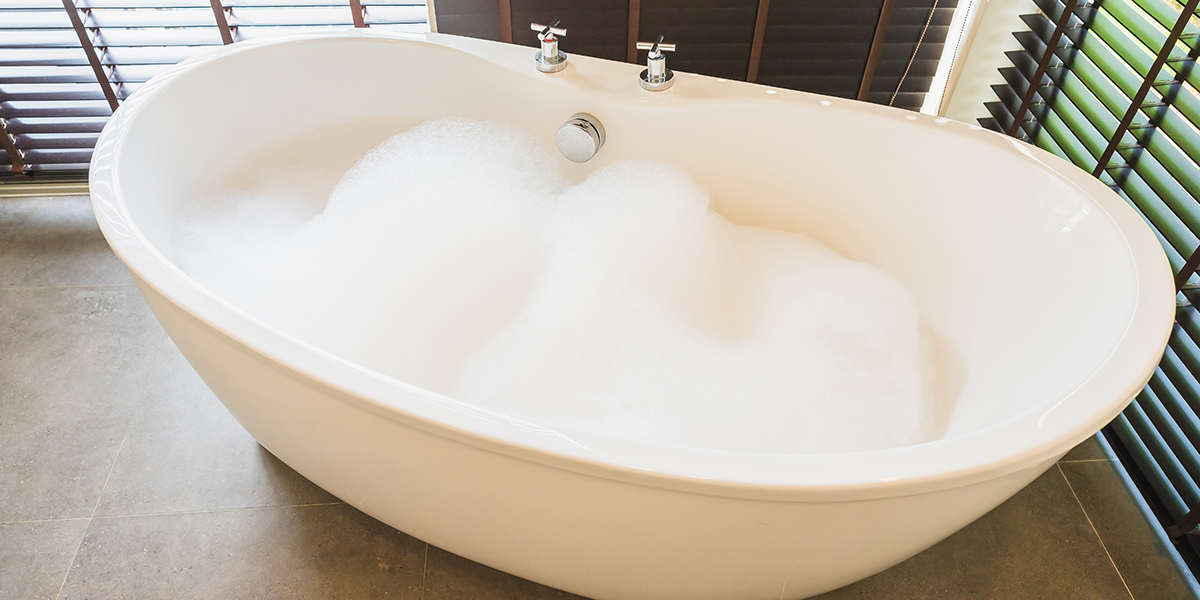The article directly below on the subject of Why sewage is coming up through your bathtub is without a doubt fascinating. Don't bypass it.

Sewage back-up in the tub can be a stressful and unsanitary problem for any homeowner. Not just is it inconvenient, yet it additionally positions severe health threats and shows underlying issues with the plumbing system. Recognizing why sewage is turning up via the tub is essential for taking proper action to attend to the trouble successfully.
Intro to the Problem
Comprehending the Issue
When sewer draws back up right into the tub, it's a clear indication of a trouble with the drain system. The wastewater that should be streaming away from your home is rather discovering its way back right into your space, which can cause substantial damages and carcinogen.
Possible Causes
Several elements can add to sewer backup in the bathtub. From blockages in the sewer line to issues with the plumbing facilities, recognizing the origin is essential for locating a service.
Common Reasons for Sewer Back-up
Clogs in the Sewer Line
Among one of the most usual sources of sewer back-up is a blockage in the drain line. This can take place due to the buildup of particles, grease, or foreign items in the pipelines, protecting against proper circulation and causing sewage to back up into your tub.
Tree Origin Breach
Tree origins seeking dampness and nutrients can infiltrate sewage system lines through tiny fractures or joints. With time, these roots can expand and expand, triggering significant damages to the pipelines and bring about sewage backup problems.
Aging Framework
Older homes may have outdated plumbing systems that are a lot more at risk to corrosion, cracks, and degeneration. As pipelines age, they become a lot more vulnerable to leaks and obstructions, boosting the possibility of sewage back-up events.
Heavy Rainfall or Flooding
Throughout durations of heavy rainfall or flooding, the drain system might become overwhelmed with excess water, causing backups and overflows. This can result in sewer supporting right into bath tubs and various other fixtures inside the home.
Wellness Dangers Associated with Sewer Backup
Contamination of Supply Of Water
Sewage back-up can infect the water system in your home, presenting a major health and wellness threat to you and your household. Direct exposure to contaminated water can cause gastrointestinal problems, skin infections, and other ailments.
Spread of Illness
Sewer includes harmful microorganisms, infections, and bloodsuckers that can cause a series of illness, consisting of liver disease, cholera, and gastroenteritis. Entering contact with sewer or contaminated surfaces puts you at risk of infection.
Mold and mildew Growth
Moisture from sewer backup can create ideal problems for mold growth in your home. Mold spores can intensify respiratory system troubles and create allergic reactions in sensitive individuals, making timely cleanup vital.
Indicators of Sewage Back-up
Foul Odors
Undesirable odors rising from drains or fixtures, especially in the bathroom, may indicate sewage backup concerns. These odors are often strong and persistent, signaling a problem that requires instant interest.
Slow Draining Fixtures
Tubs, sinks, and toilets that drain gradually or otherwise in any way could be experiencing sewer back-up. If numerous components are impacted concurrently, it's likely that the concern stems from a typical point, such as the main sewage system line.
Gurgling Noises
Unusual gurgling or gurgling sounds coming from drains pipes when water is running elsewhere in your house are a measure of air trapped in the plumbing system. This air buildup can result from sewer back-up and need to be investigated promptly.
Immediate Actions to Take
Turning Off Supply Of Water
In the event of sewer backup, it's necessary to turn off the water to stop additional contamination and damage. Locate the major water shutoff valve in your house and shut it off till the problem can be dealt with.
Contacting a Professional Plumber
Managing sewage back-up is not a DIY work. Call a certified plumber with experience in dealing with sewage-related concerns to examine the scenario and carry out essential repair work or cleanings.
Avoiding Contact with Polluted Water
Until the sewage backup is solved, prevent contact with polluted water to avoid the spread of germs and virus. Put on safety gear if you need to be in the affected location and wash your hands extensively later.
Safety nets
Routine Upkeep of Drain Lines
Arrange routine assessments and maintenance of your drain lines to recognize and attend to prospective problems prior to they intensify into major problems. This can consist of clearing out debris, inspecting for tree origin invasion, and fixing any broken pipes.
Installing Bayou Valves
Take into consideration mounting backwater shutoffs in your plumbing system to avoid sewer from flowing back right into your home during durations of heavy rainfall or flooding. These valves immediately close when water draws back up, safeguarding your residential property from contamination.
Correct Disposal of Home Waste
Avoid purging anything other than bathroom tissue and human waste down the toilet to avoid clogs and blockages in the drain line. Dispose of grease, oil, and various other house chemicals properly to minimize the risk of plumbing problems.
Cleaning Up After Sewage Backup
Disinfection Procedures
Thoroughly disinfect and disinfect influenced locations after sewer backup to eliminate damaging germs and prevent mold and mildew development. Use appropriate cleansing items and protective gear to guarantee safe and efficient clean-up.
Remediation of Affected Locations
Fix any type of damages to floor covering, walls, or fixtures caused by sewer backup. Depending on the level of the damages, you might need to change carpeting, drywall, or various other products to restore your home to its pre-loss problem.
Why Is Water Backing Up in My Bathtub When I Flush My Toilet?
What to do about a sewer line clog
First, don’t bother with plunging. No amount of plunging will dislodge the clog in a sewer line. The clog is too far away. Plungers are for clogs in the toilet itself, not the sewer line. Plus, the most likely causes of a sewer clog are:
Tree roots Flushed toys or feminine products Grease buildup Those items don’t move easily. And in the case of tree roots, the roots need to be cut out of the pipe and the pipe will need to be repaired.
You’ll need a closet auger. A closet auger is a type of plumber’s snake with a protective cover to keep from scratching the delicate porcelain toilet. If the clog is further down, you may need to remove the toilet or use one of your cleanouts to get to the clog.
We also recommend doing a video inspection of the drain to ensure that the cause of the clog has been completely removed. Otherwise, you could have the same problem again in a few days or weeks.
https://mspplumbingheatingair.com/blog/why-is-water-backing-up-in-my-bathtub-when-i-flush-my-toilet

I'm certainly very fascinated with What To Do If Sewage Starts Backing Up Into the Shower and I'm hoping you enjoyed reading the new piece. Do you know about somebody who is truly interested in What to Do if Sewage Starts Coming Up Through Your Bathtub? Feel free to promote it. We appreciate your readership.
Call Today